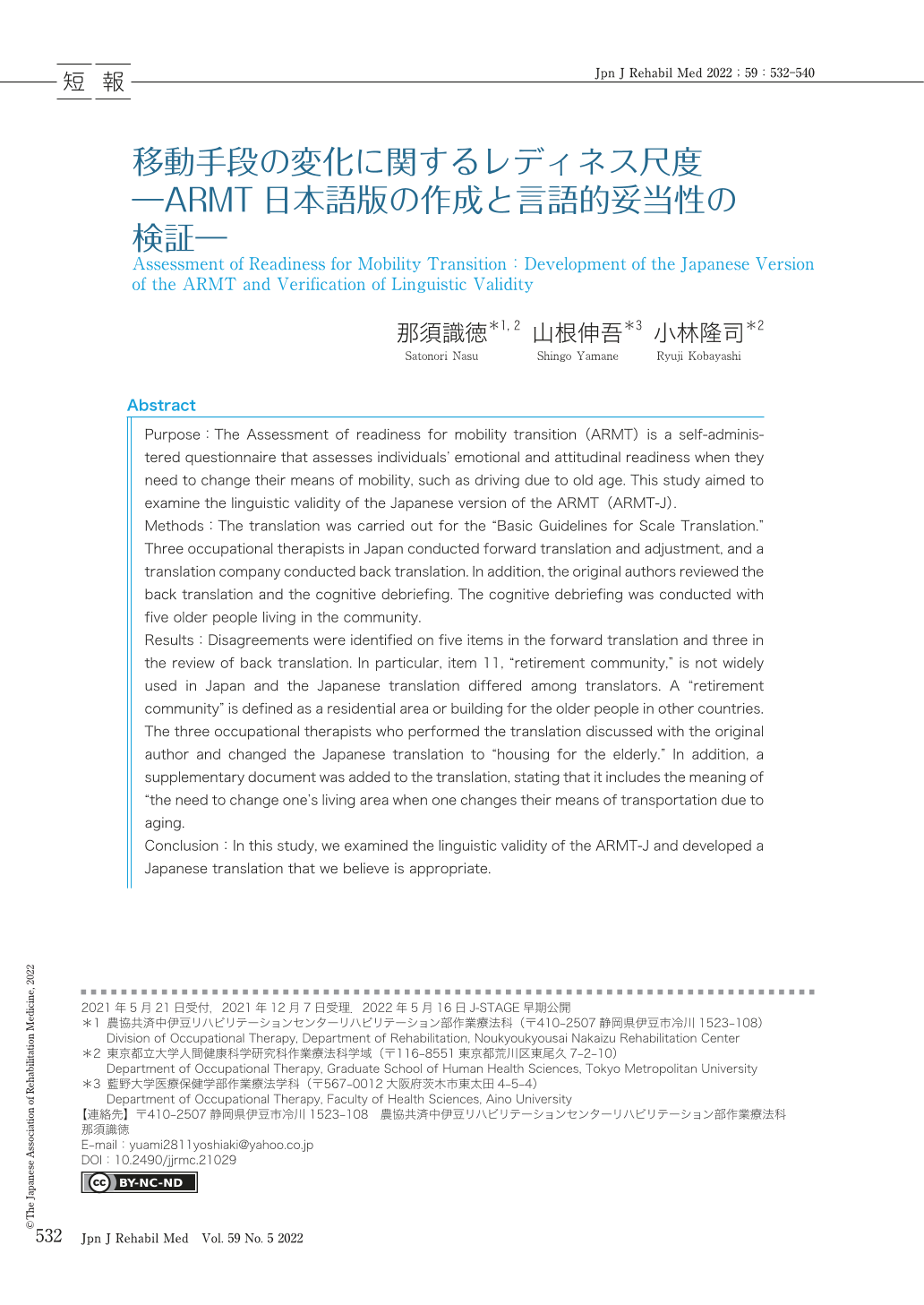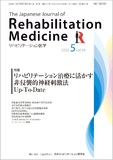Japanese
English
- 販売していません
- Abstract 文献概要
- 1ページ目 Look Inside
- 参考文献 Reference
要旨
目的:高齢になり運転などの移動手段を変更する必要がある場合に,個人の感情面や態度の準備状況を把握するための自記式質問紙としてAssessment of Readiness for Mobility Transition(ARMT)がある.本研究ではARMT日本語版(ARMT-J)の言語的妥当性を検証することを目的とした.
方法:「尺度翻訳に関する基本指針」を参考にして「順翻訳,調整,逆翻訳,逆翻訳のレビュー,認知的デブリーフィング,認知的デブリーフィングのレビュー,校正,最終報告」を実施した.順翻訳と調整は国内の作業療法士3名が行い,逆翻訳は翻訳会社に依頼した.逆翻訳のレビューと認知的デブリーフィングのレビューは開発責任者に依頼し,認知的デブリーフィングは地域在住高齢者5名を対象に行った.
結果:順翻訳では5項目,逆翻訳のレビューでは3項目で意見の相違が確認された.特に項目11の原文である「Moving to a retirement community is too restrictive for my desired mobility.」の中の「retirement community」は日本では普及しておらず,翻訳者間で日本語訳に相違を認めた.海外では「retirement community」は高齢者のための居住地域または建物と定義されており,翻訳にかかわった作業療法士3名と開発責任者にて協議のうえ,日本語訳は「高齢者のための住宅」とした.さらに,開発責任者に確認を行い,加齢のため移動手段を変更せざるを得ない場合,居住地域を変更する必要があるという意味が含まれているという補足文書をつけ,ARMT-Jを完成させた.
結論:本研究ではARMT-Jの言語的妥当性を検討し,妥当と思われる日本語訳を作成した.
Purpose:The Assessment of readiness for mobility transition (ARMT) is a self-administered questionnaire that assesses individuals' emotional and attitudinal readiness when they need to change their means of mobility, such as driving due to old age. This study aimed to examine the linguistic validity of the Japanese version of the ARMT (ARMT-J).
Methods:The translation was carried out for the “Basic Guidelines for Scale Translation.” Three occupational therapists in Japan conducted forward translation and adjustment, and a translation company conducted back translation. In addition, the original authors reviewed the back translation and the cognitive debriefing. The cognitive debriefing was conducted with five older people living in the community.
Results:Disagreements were identified on five items in the forward translation and three in the review of back translation. In particular, item 11, “retirement community,” is not widely used in Japan and the Japanese translation differed among translators. A “retirement community” is defined as a residential area or building for the older people in other countries. The three occupational therapists who performed the translation discussed with the original author and changed the Japanese translation to “housing for the elderly.” In addition, a supplementary document was added to the translation, stating that it includes the meaning of “the need to change one's living area when one changes their means of transportation due to aging.
Conclusion:In this study, we examined the linguistic validity of the ARMT-J and developed a Japanese translation that we believe is appropriate.

Copyright © 2022, The Japanese Association of Rehabilitation Medicine. All rights reserved.


